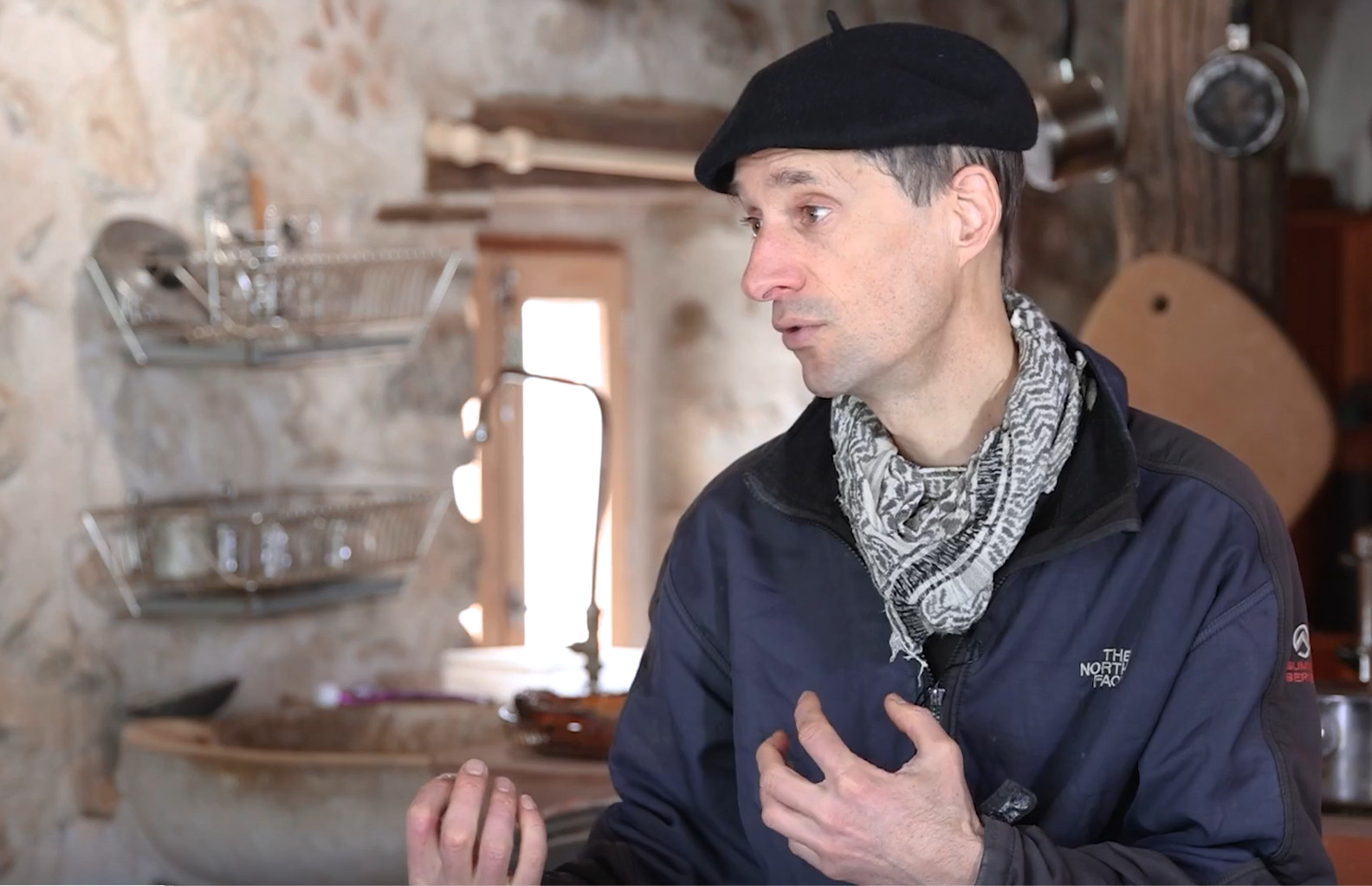
- Odei Etxeberria and Gorka Torre have been working for 14 years the edible forest or forest orchard. Torre explains in Egonarria the bases of this system that combines trees and vegetables answering the questions of Mattin Jauregi. Over the years a number of conclusions have been drawn which, with the aim of self-sufficiency, are currently working in the lands of Behorlegi vegetables that demand the simplest supplies and guarantee their food throughout the year.

The interesting interview by Gorka Torre can be seen in full in this video:
Below are some ideas that emerged in the interview:
Gorka Torre explains what the forest orchard consists of: "It is an organization based on the union of plants and trees, that is, the planting of both types of plants in an area. It's inspired by the forest or forest, you know that in a forest, plants develop at different levels, from large trees to the lower plants. The main thing is sunset, as solar energy is responsible for the production of organic matter in the plant. Therefore, what we must take special care of is the distance between the trees, so that they do not make too many shadows, such as for the sun to come in".
Organization to eat fresh vegetables all year round
Their goal is self-sufficiency at home. The choice of vegetables to be grown in the forest garden has therefore been based on ensuring technical or technological self-sufficiency, i.e. the use of very basic instruments which do not require oil or electricity. On the other hand, cultivating vegetables that guarantee adequate food throughout the year.
This has led them to make a selection of vegetables and plants: they have discarded the cereals (the processing of which requires mills) except maize, and through the nixtamization process they obtain a paste for stems, without the need to convert them into flour. And they have recovered various varieties of the Basque Country, some very early and some very late, to have fresh food all year round: "We have 40 different types of plants, which allow us to have food in the garden all year round, meet our nutritional needs and are those that do not need transformation (or very few), and our idea is that throughout the year we can harvest vegetables directly in the vegetable garden. I mean, we don't do conservation. Therefore, we do not need energy to put products into preserves or we do not use hormones to conserve food."
Tubers mostly work: "We have developed exactly the sweet potato (called sweet potato in the South), the topinambu (also called pig potato or gerla) and the jar."

Knowing self-sufficiency
Mattin Jauregi, presenter of Egonarria, asks if they are completely independent of food. Torre replies: "We have achieved the knowledge, all the utensils we need and the ability to obtain plant seeds. We have therefore managed to build that whole cycle. We qualitatively know how to produce the food we need throughout the year. But we don't do 100 percent, because we want to release some of our time to impose ourselves on the multiple battles, so we don't spend all the time we would need if we wanted to feed ourselves 100 percent. But we know how to do it, and we do it largely."
A "situationist garden"
Torre sees how everything he does in the forest orchard: "When I am going to do a dirt job it is the pleasure of doing a physical exercise, it is the pleasure of producing a food, it is the pleasure of sunbathing, it is a space to transmit knowledge, it is a nice place to talk to a friend. And it's a space to enjoy beauty. I mean, there are no separations, I'm not just going to produce food. It's common sense. And an important idea of the situationist movement was that we do not have to separate the different areas of our lives, that separation is more a consequence of the state and capital." Their orchards have been called "situationists".